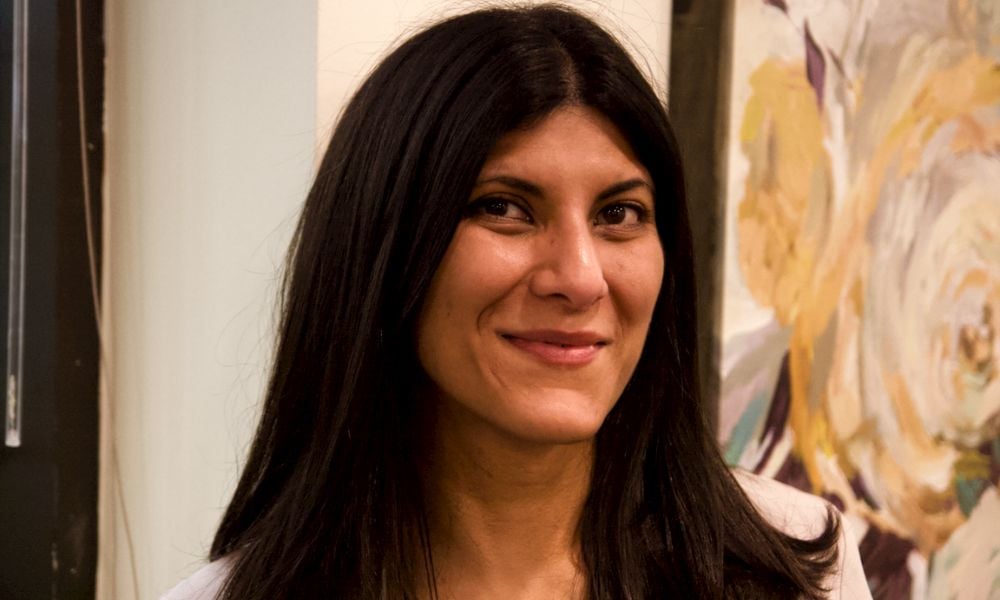Mithoowani loves the combination of human-focused and intellectually stimulating issues

Naseem Mithoowani grew up in a small town outside London, Ontario. She and her Muslim family were among the few people of colour in the community.
Mithoowani’s father came to Canada as a refugee from Uganda, so politics was always something that her family discussed, but she says she did not often experience overt racism.
However, there was always a feeling that you should downplay your differences.
But Mithoowani says she hadn't thought of what that meant until she learned about the Charter in a high school class. The idea of minority rights was a brand-new concept to her then, but it lit something up in her and meant she knew she was bound for law school when she started her undergraduate degree.
After completing an undergraduate degree in French literature at McMaster University, Mithoowani entered Osgoode Hall Law School in 2004. After her first year, she returned home to London, Ontario, to work at Lerners, a full-service firm. That is where she articled and began working as an associate after she graduated from law school.
“What was really special about Lerners is that in my first year of being an associate, the partner that I worked closely with wanted to explore an immigration practice,” she says. Mithoowani is still in touch with that partner, Faisal Joseph.
Her time at Lerners was her first experience with immigration, but she never looked back. It also meant Mithoowani was learning to set up a practice from the ground up.
“It was learning the admin side, the marketing side, the client communication, all of those sorts of soft skills, plus putting together and filing applications that I never had previously done and didn't have a precedent bank to rely on.”
Mithoowani recalls successfully helping a client with a permanent residency application and seeing him in the community weeks later. When she saw how important her work had been to him and his family, she says she knew she wanted to practise immigration law full time.
Once Mithoowani decided to specialize in immigration, she joined Waldman & Associates in Toronto. “This was the place to learn immigration law. I couldn't have asked for a better, more varied experience.”
Mithoowani says she was still very interested in building her client base and maintaining links to the London and Muslim community. The founding partner Lorne Waldman encouraged her to do that when she joined.
In addition to the varied files at the firm, she says Waldman also taught her an important lesson in client communication. “If there's no option for a client, you're upfront with them, and you decline a retainer.”
Mithoowani practised at Waldman & Associates for over ten years and decided in 2019 that she had a strong foundation in the law and wanted to launch Mithoowani Waldman Immigration Law Group with fellow lawyer Clarisa Waldman. “It was really just learning the business side of it and implementing” it.
She didn’t know at the time, but the pandemic would significantly disrupt her practice soon after she launched. “It went from hundreds of emails a day to zero,” she says. With borders, immigration tribunals and courts all closed, no one was thinking about immigration.
“It was a scary time. I was in the process of starting something on my own and trying to think about” the pandemic’s impact.
Mithoowani says she sought advice from senior members of the immigration bar, who told her they had all seen cycles in the past that altered the landscape but that the work always came back.
“Hearing that from people who had been in this for a lot longer than me helped calm those fears.”
Mithoowani applied to be a part-time adjudicator with the Canadian Human Rights Tribunal at that time and was appointed in May 2021.
In addition to supplementing her uncertain income as she started her new firm, the position allowed her to develop new skills. She now leads mediations and learned case management and how to write decisions.
“These are all new and very interesting aspects of the law that I'm getting to explore with this with this appointment.”
Mithoowani also sits on the board of the Islamic Relief Canada and the Crescent Town Club, and volunteers with the Jewish Immigrant Aid Society and the University of Toronto’s National Security Student Helpline.
Her immigration practice also gives her many opportunities to push for systemic change. However, she says all her files are important in their own way.
“There's no file in this area of law where the stakes aren't high for the individual. And I see my job as important because it ensures that the rights of people who otherwise aren't top of mind, necessarily, for policymakers and for governments, are respected.”
Mithoowani says some clients are interested in having her push for broader change, such as improving immigration detention conditions. She will also be intervening at the Supreme Court in the fall on cases that deal with rights of the rights of refugee and immigration claimants, including a case challenging the Safe Third Country Agreement. She also co-teaches immigration law at Osgoode Hall Law School, which she says provides her “yearly shot of optimism about the profession” when she sees students becoming passionate about these issues.
“Immigration is one of those things that everybody has an opinion on.”
For Mithoowani, though, it is when she speaks to other lawyers who are at a similar stage in their career and are tired of the law that she realizes her practice is so fulfilling.
“I think there's something about immigration work that is addictive. It's because it's social science, it's the law, and it's very human-focused. It's such an intellectually stimulating and satisfying area of law. I love it.”










